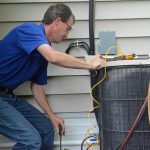
Reducing Pollen and Allergens in Your Home
If you’ve started to spot that tell-tale yellow dust that signals the return of spring in Tallahassee, it’s time to start guarding yourself and your home against common outdoor allergens.
If you or a member of your household suffers from seasonal allergies, limiting your outdoor exposure to pollen and other allergens can help, but it may not be enough to curb allergic reactions. The real culprits are the allergens already circulating inside your home.
Follow these guidelines to reduce allergens and improve the air quality in your home.
Change your air filters
You probably already know that it’s important to change your home comfort system’s air filters regularly; most filters need to be changed every one to three months. But beyond replacing your usual filter, you may want to consider stepping up to a filter with a higher Minimum Efficiency Reporting Value (MERV) rating. The MERV rating measures the effectiveness of air filters on a scale of one to 20, with 20 filtering out the smallest particles. Most homes have air filters with MERV ratings of one to 12.
High-efficiency particulate arrestance (HEPA) filters have MERV ratings of 17 to 20, but are not usually recommended for home HVAC systems. According to the Environmental Protection Agency, HEPA filters are often impractical in central HVAC systems because the dense filter material can cause a large pressure drop inside your home and your system to use more energy to circulate air throughout your home. Instead, the EPA recommends using filters with MERV ratings between seven and 13, which are nearly as effective as HEPA filters when filtering out pollen, pet dander, dust, mold spores and other contaminants, with much lower associated system and operating costs.
Clean house
Keeping your home clean is important for a number of reasons, but there are a few specific tasks to keep in mind when trying to reduce allergens and improve air quality in your home.
In addition to changing your filters, it’s important to keep up with your home comfort system’s regular maintenance, including having your air ducts cleaned. You’ll also want to be sure to clean your home’s vents of any dust, pollen or other particles that have settled there.
Vacuuming is a great way to remove dust and debris from carpeting and furniture, but to really get the job done, you may want to invest in a vacuum with a HEPA filter. Though a regular vacuum may take care of debris, it can also help recirculate allergens (including pollen and pet dander) through the air in your home. A vacuum with a HEPA filter or bag, however, can remove 99.9 percent of the allergen particles that pass through it. Even if your home’s air filter is catching airborne allergens, vacuuming is essential to eliminate allergens that have settled on floors and fixtures.
Clean doormats and entryway rugs regularly. Your shoes (and whatever it is you clean them off with) can pick up a lot of the pollen and allergens that collect on the ground outside your home.
Though pets are a common source of allergy woes, their dander isn’t always the biggest offender. Pets that spend time outside will bring pollen and other allergens into your home, so it’s important to brush and bathe them regularly, which will help cut down on not only outdoor allergens but dander as well.
If you occasionally line-dry your laundry outdoors, be sure to use a clothes dryer instead during seasons with high pollen counts.
Finally, though the weather might be tempting, resist the urge to keep your windows and doors open while pollen counts are high. But, if you really want to feel that fresh spring breeze without all the pollen and other allergens, consider investing in HEPA screen filters for your windows and doors.
For more information on improving the air quality in your home, contact Barineau Heating & Air Conditioning or give us a call at (850) 580-4029.




